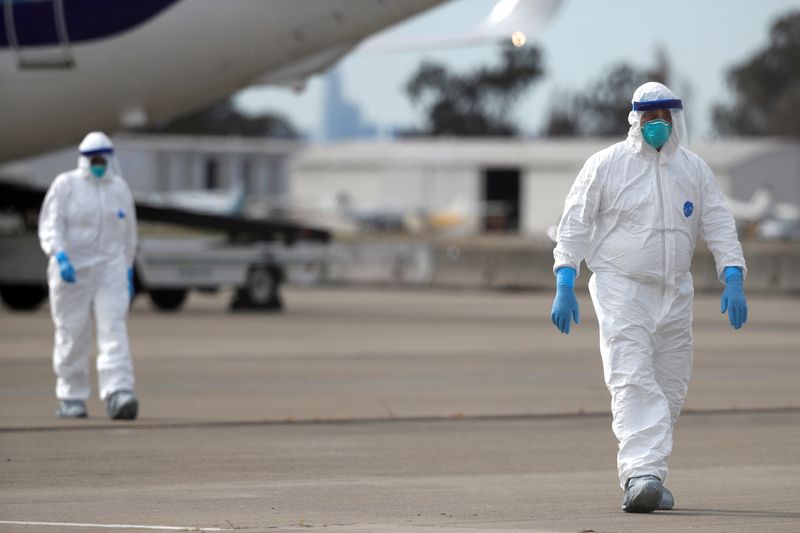By David Shepardson
WASHINGTON (Reuters) - The U.S. Transportation Security Administration (TSA) said it screened more than 1 million airline passengers on Sunday for the first time since mid-March.
The number, 1.03 million, is still about 60% lower than the same day last year, but is a dramatic rise from the collapse in air travel demand caused by the coronavirus pandemic. Screening fell to as little as 87,000 in a single day in April.
The previous high was 1.26 million screened on March 16.
U.S. airlines are collectively burning more than $5 billion in cash a month and have failed to date to convince Congress to approve a new $25 billion bailout that would have kept more than 32,000 workers on the payroll for another six months.
American Airlines (NASDAQ:AAL) furloughed 19,000 workers, while United Airlines furloughed 13,000 workers.
Staff for the top Democrats and Republicans on the House and Senate committees overseeing airlines have been working to try to reach agreement on a potential standalone airline bill, but the airlines are not optimistic any bill will be approved before the Nov. 3 presidential election.
A previous airline payroll support program expired on Sept. 30. At some point, airlines may shift messaging to seeking new government funds to bring workers back.
Airlines for America, a trade group representing American Airlines, United, Delta Air Lines (NYSE:DAL) and others have said passenger volumes are down about 64%, including 62% domestically and 79% internationally.
U.S. airlines are operating 48% fewer flights than a year ago and still have nearly one-third of their fleet idled, the group added.
The TSA statement on Monday also said it is adopting new measures to make security screening safer, including installing credential authentication devices at some checkpoints enabling passengers to insert IDs directly into a card reader.

New CT scanners at some checkpoints also often allow officers to check items without having to open a carry-on bag.